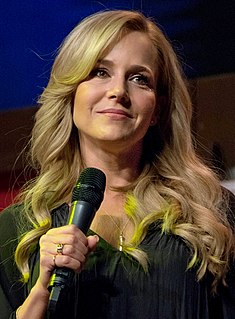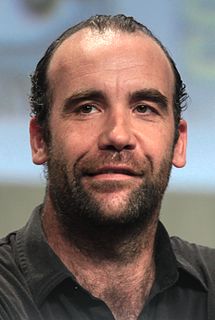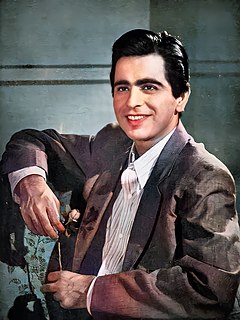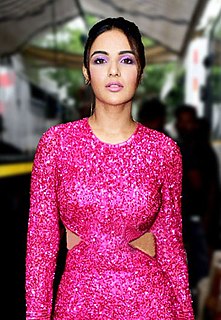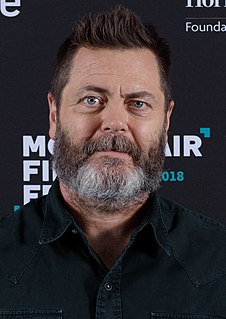A Quote by Michael Jai White
I did not think I had what it took to be an actor, because most of the actors that I encountered were people who were very narcissistic and I thought since I lacked narcissism to become an actor because that's what it took. It was more of a social experiment for me to walk in the shoes of other people that I found interesting.
Related Quotes
It's really interesting - I wanted to become an actress when I was young because I wanted to do romantic comedy. And I did a lot of comedies very early on, but then my career took kind of a left turn with Joss Whedon, and I discovered that doing genre work is actually more interesting as an actor, because the given circumstances are more extreme. And it really is creatively more challenging.
My story about becoming an actor is a completely non-romantic one. I became an actor because my parents were actors, and it seemed like a very... I knew I was going to act all my life, but I didn't know that I was going to be a professional actor. I thought I was just going to work as an actor every now and then.
Back then I was still listening to rhythm and blues, and my aunt took me to see a Pete Seeger concert. And it gelled. He made all the sense in the world to me. I got addicted to his albums, and then Belafonte and Odetta - they were the people who seemed to fuse things that were important to me into music. I think Pete the most because he did what he did to the point where he took those enormous risks and then paid for them.
There were times at the start of it all when I would be standing, terrified, in front of the cameras and people I considered 'real' actors. I had no idea what was happening, what the guy with the clipboard did, or if people in the studio were looking at me because it was their job to look at me or because they thought I was making a mess of things.
My mother and my father had very, very strong Scots accents. We were Australian, and in those days when I was young, I spoke with a much more of an Australian accent than I have now. However I knew that if I went to England to become an actor, which I was determined to, I knew that I had to get rid of the Australian accent. We were colonials, we were Down Under somewhere, we were those little people Over There. But I was determined to become an Englishman. So I did.
I wanted to be an actor ever since I was five. My grandparents - my mom's parents in New York - were stage actors. I think indirectly I wanted to do it because of them. My grandfather would tell me stories about Tennessee Williams and actors he worked with in New York. He had such a respect for acting and such a love for storytelling about that world. I grew up hearing him tell tales of it.They were never encouraging me or discouraging me to take part. They were always feeding me with theater.
I couldn't give away my husband's shoes. I could give away other things, but the shoes - I don't know what it was about the shoes, but a lot of people have mentioned to me that shoes took on more meaning than we generally think they do... their attachment to the ground, I don't know - but that did have a real resonance for me.
In my formative years the people who influenced me most were the Christian existentialists, I mean men like Munier and Kierkegaard and perhaps most of all Nicholas Berdyaev and in my travels I looked for one thing more than anything. I rarely discussed, probably mainly because of language difficulties, metaphysics with the various religious people of other groups I'd meet with. But I'd very much try to see how they were incarnated, how their particular soul was incarnated or took roots into reality.
I began to understand that there were certain talkers - certain girls - whom people liked to listen to, not because of what they, the girls, had to say, but because of the delight they took in saying it. A delight in themselves, a shine on their faces, a conviction that whatever they were telling about was remarkable and that they themselves could not help but give pleasure. There might be other people - people like me - who didn't concede this, but that was their loss. And people like me would never be the audience these girls were after, anyway.
When I [first] went to university, I was doing foreign languages, because I had done them since I was 13 years old. I had done French and German. I picked up Italian, just sort of blasted through the exams, [and then] took off overseas, because I wanted to be an actor. I thought, "I'm just not academic." I'm not very competitive, in terms of acting. But since going back to university, I've realized, I am highly competitive.

